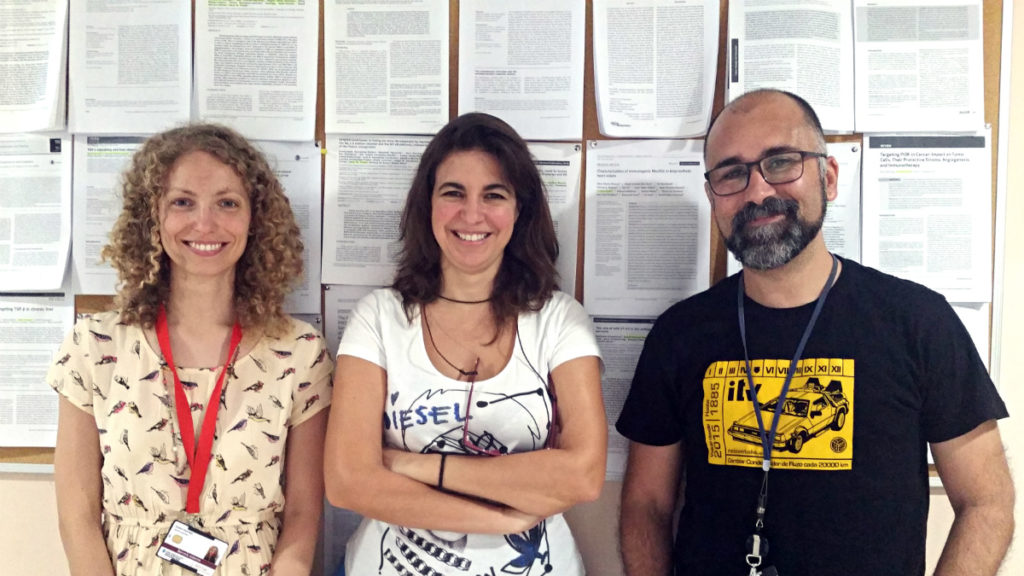Researchers at the Bellvitge Biomedical Research Institute (IDIBELL) will lead the pan-European project ‘Targeting the metabolism-immune system connections in Cancer’ (META-CAN), an innovative training network (ITN) funded by the European Commission that will hire and train fifteen early stage researchers in metabolism, immunity and cancer for three years. Dr. Cristina Muñoz-Pinedo, head of the cell death research group at IDIBELL, will be coordinate the network, while Dr. Òscar Martínez-Tirado, leader of the IDIBELL’s sarcoma research group, will be among the supervisor researchers.
“The coordination of an ITN offers an overview of an issue of current interest, in addition to enhancing the visibility of the institution at a European level”, explains Dr. Muñoz-Pinedo. “As supervisors, we have the opportunity to attract young people with high competencies to our research groups and begin or strengthen relationships with the private sector. Moreover, young researchers hired through this network will be able to enjoy high-level training that will be key in their careers”, adds Dr. Martinez-Tirado.
At the research level, the network aims to unveil how metabolism is associated with modulation of cell death susceptibility and the immune response in the context of cancer. Scientists will explore how nutrients and hypoxia regulate the tumor-immune system interplay, and how this communication is controlled by oncogenes, metabolic regulators and current or potential drugs targeting metabolism. “Understanding how metabolism can affect tumor cells and the anti-cancer immune response represents a potential therapeutic intervention point that can be exploited to develop novel therapies and new diagnostic and prognostic markers. “, explains Dr. Muñoz-Pinedo.
The ITN META-CAN brings together 10 research centers or biomedical companies from 6 countries (Spain, France, the Netherlands, Belgium, Israel and Austria), as well as an extensive network of collaborators. After the four years of the program, the 15 participants are expected to be able to navigate with ease between academic, industrial and clinical sectors and have the scientific and complementary skills to convert research findings into commercial and clinical applications.
The ITN call, within the Marie Sklodowska-Curie funding program, is a very competitive one, with a success rate of 7% and the added difficulty of presenting a single, unified proposal based on the contribution of the different partners. It offers very competitive salaries to early stage researchers and encourages their mobility, not only between countries but also between sectors, bringing them together with World leading academics, clinicians, pharma industry members, corporate research and dissemination and outreach specialists

